- Home
- Andy McNab
Aggressor ns-8 Page 4
Aggressor ns-8 Read online
Page 4
Her head tilted sharply and her blue eyes speared me over the top of her sunglasses. ‘After last night, you still have to ask this?’
I grinned. ‘The ocean will still be here tomorrow. But will Silky? One can never tell with you hippies.’
She arched an eyebrow. ‘Just because George Bush keeps adding to his list, Nick, doesn’t mean that you have to keep cutting from yours…’
‘That’s me. Hand luggage only.’
Silky nodded thoughtfully, dumped the rest of the cone on her plate and wiped her hands.
‘Bush can live his dream.’ I looked back at the sea. A line of surfers rode a perfect wave. ‘I’ll have mine.’
And I did. Bumming round Australia in a camper van, freefall rig in the back, a backpacker along for the ride. The only bit of pressure each day was deciding whether to risk looking like a dickhead on a surfboard, or to do something I was pretty good at, jumping out of aeroplanes. Only dress code, T-shirt, shorts and flip-flops — and the collection of friendship bracelets I’d accumulated over the last few months around my wrist. Money wasn’t a problem. When I ran short, I just drove to another boogie [freefall parachute meet] and packed rigs. I didn’t regret for a moment dumping Plan A, to buy a bike and tour the States. One look at the CNN weather forecast for November back in Washington had been enough.
Silky checked her watch. ‘Better hit the road if we’re going to make it by tonight.’
‘You still want to come?’
‘Of course. I want to meet your friends.’ She stood up and adjusted her cut-off Levis. ‘And we hippies never turn down a free bed.’
It felt pretty good to see all the men turn as she brushed her hand across her long, tanned thighs as we walked to the car park. She’d taken my lectures about sand discipline to heart. I liked to keep the stuff on the beach, where it belonged, and not in vehicles and tents.
The sun was fierce on my shoulders and head, and I knew what was coming. It was hot as an oven inside the 1980s, box-shaped, mustard-coloured VW combi. The guy who’d sold it to me in Sydney had thrown in the corrugated tinfoil window screen for free, but I never remembered to put it up.
Silky made a final check that she wasn’t bringing any sand in with her and threw a beach towel over the burningly hot PVC.
‘It’ll feel cooler once we get moving,’ I said.
‘What will?’ She pouted. ‘The van, or us?’
The air-cooled wagon chugged slowly out of the car park and through the busy streets of the little resort. It looked as if it had been around the planet a couple of times, let alone a continent. I hoped it wasn’t going to finally throw in the towel before I got back to Sydney, cleaned the thick layers of bug kill off the windscreen, and sold it to some other sucker.
We hit the highway south to Brisbane and I was soon on autopilot, elbows on the steering wheel as I stared at the long straight ribbon of tarmac and through the shimmering heat haze. Silky sorted out a cassette from the shoebox between us. There weren’t many still intact; she’d left the box on the seat one afternoon and most of them had melted so badly they looked as if they belonged on a Salvador Dalí canvas.
The Libertines sparked up through the crackly door speakers and were soon competing with the rush of wind through the side windows.
Silky settled back in her seat, her sandalled feet resting on the dashboard. A few songs in, she turned to me and said, ‘We’re a good fit, no?’
I didn’t know where that had come from, but she was right. Coming to this place and meeting her had been one of the best things I’d ever done.
It hadn’t been a tough decision, binning George. I never got to find out which department of the CIA or the Pentagon he worked for, and really didn’t give a shit any more.
I just got up one morning, packed everything I owned into two cheap holdalls and a day sack, and went to the office. I told George the truth. I’d had enough; I was mentally fucked. I sat across the desk from him, waiting for one of his habitually scathing replies. ‘I need you until you’re killed or I find somebody better, and you aren’t dead yet.’ But it didn’t happen. Instead I got, ‘Be gone by tomorrow, son.’ The war would go on without me.
As I walked out of the building for the last time, en route to pick up my bags from an apartment I was never going back to, I felt nothing but relief. Then I thought, fuck it; George could have tried a little harder to keep me.
There was a noise like a drunken hod carrier tap-dancing on the roof and I slowed down; I knew exactly what it was. Silky jumped out and stood on the running board. Her surfboard was coming unstrapped again; the wind was getting hold of it. It didn’t matter how many extra bungees I bought her, she always insisted two were enough. She didn’t think the fact we had to stop and do this three or four times a day undermined her argument.
She jumped back in, slammed the door and smiled at me, then started slapping her thighs to the music again as we drove on. The hippie thing was just a piss-take. We’d met at a boogie just outside Sydney. She was in her late twenties and had been travelling for the last six or seven years, working the bars, fruit-picking, hitching rides. It had started as a gap year, then she’d forgotten to go home. ‘The beaches are better here than in Berlin.’ She’d laughed. ‘I bet the same happens to you.’
She’d hitched a ride north with me. Why not? It was only a couple of extra thousand miles in the magical mystery tour that she called her life. I was hoping for a little bit of that myself now.
Silky stopped slapping her thighs and went and dug around on the back seat for some water. She clambered back beside me, sorted out her towel, and passed me the bottle. ‘So, who exactly is Charlie?’ With the Libertines and the wind rush in full swing, she had to shout.
‘Tindall? Known him for years. We worked together.’
She held back her hair with her free hand as she took a swig. ‘Doing what? I thought you worked in a garage, not on a farm.’
‘That’s just what he does now. We used to do loads of stuff — a little bit of freefall, that sort of thing.’
‘Is he still jumping? Is that what we’re going to do?’ She jerked her thumb at the five-cell Raider rig on the back seat.
‘No idea, I just wanted to catch up with him while I’m here. You know how it is. You’re really close to someone for a while, then you don’t see or hear from him for years. Doesn’t make you any less of a mate.’ I picked up the map that lay between us and threw it at her. ‘Except we have to find him first.’
Four hours of long straight roads and one petrol stop later, and we were approaching a small town that sounded more like a tongue-twister than a place on the map. The instructions Charlie had emailed me took us past a store with a tin roof and three saddled horses tied to a rail. We took the track left immediately after a blue letter box at the roadside, made out of a milk churn nailed sideways to a post.
We turned a corner or two and a haphazard collection of red tin roofs and a water tower started to take shape in the distance through the heat haze. We had arrived at Charlie’s farm. Well, his son-in-law’s, but all the family had chipped in. They’d sold their houses and moved to Australia lock, stock and barrel. Once Charlie had reached the magical age of fifty-five, God’s own country had welcomed him with open arms — as long as he took out private health insurance and didn’t expect an Australian pension. His own had kicked in when he’d left the army, though it was hardly enough to keep him in caviar and champagne. Charlie had been offered a commission and taken it. As an officer, he could stay in an extra fifteen years, instead of getting binned at forty.
We drove down half a mile of track, post-and-rail fencing either side of us. About a hundred metres from the house, a woman on a horse, waving like a lunatic, overtook us. I couldn’t see much of her face under her baseball cap, just this huge smile. I slowed, but she waved us on. She stopped at a gate and we carried on along the track.
‘Who was that?’ Silky didn’t sound jealous. A perpetual traveller couldn’t be.
�
��Probably Julie, the daughter. The last time I saw her she was about seventeen with a face full of zits. That would have been a good fifteen years ago.’
We pulled up by the house, alongside a weather-beaten Land Cruiser and a pick-up truck that had seen better days.
Charlie stood on the veranda to welcome us, a big man in a green T-shirt. With his cropped, dark red hair, he was on his way to doing a pretty good impression of a traffic light. I could see Silky trying not to stare too obviously at the grey socks he insisted on wearing under his sandals. ‘Don’t worry about it,’ I said. ‘It’s a Brit thing.’
Hazel came out and slipped an arm through her husband’s. She was dressed more or less the same as him, except her feet were bare. They both walked down the steps and out into the sun to greet us.
Charlie was heading for sixty but still looked as fit as a butcher’s dog; there wasn’t an ounce of lard on him, and that ginger hair somehow added to the healthy outdoor look. The sun hadn’t been kind to him though; his skin was more burned than tanned. He thrust out a hand, small and out of proportion to the rest of him. He certainly hadn’t shrunk with age; he was still a good two or three inches taller than me, but his grip wasn’t as strong as it once had been. ‘All right, lad? Glad you’ve come.’ He kept eye contact to make sure I knew it.
We finished shaking and Hazel took over. I put an arm around Silky’s shoulder and introduced her to them both.
‘My name’s really pronounced Silk-a,’ she corrected me. ‘But Nick calls me Silky. It’s maybe easier if you do the same, otherwise you could confuse him.’
Hazel still had the same long, dark brown hair, and very clear, untanned skin. Her eyes had wrinkled with laughter when she was younger; I remembered her beaming behind the counter in Dixons in the precinct, always happy to use her employee discount for any Regiment guy who came in. They looked older and wiser now. Maybe sadder, too.
Hazel started to hustle us into the house. ‘Sure you can’t stay more than a night?’
‘No, we’ve got to move on. There’s a boogie in Melbourne on the ninth.’
Silky took Charlie’s arm as we hit the steps up to the veranda. ‘Do you still parachute? Nick said you used to.’
‘No.’ He gave me a questioning stare. ‘Not any more.’
2
‘While she’s freshening up, lad — what does she know about work, besides the parachuting?’
It was a question Charlie had to ask. He didn’t want to put his foot in it.
‘Nothing. She thinks I’m a panel-beater.’
‘With a boss who lets you take the year off? Or did you tell her you’re retired? She’s obviously got a bit of a soft spot for the elderly.’
I returned his grin just as Hazel came back into the living room with a tray of orange juice and glasses.
‘I hope he’s not trying to sell you a horse, Nick?’
A few notes of German drifted down the stairs as Silky relaxed under the shower.
‘Nah, he’s been giving me a hard time for not following his example.’
‘But you’re too young to retire…’
‘I mean about not getting my hooks into a gorgeous girl like he did.’
Hazel smiled as she put the tray down. ‘Has he told you about the lovely life we have now?’
‘Not yet, but I’m sure it’ll only be a matter of time!’
Hazel fussed around like a mother hen as she rearranged all the things neatly on the coffee table. Eventually she poured three glasses and we clinked them in an unspoken toast.
I pointed out of the window. ‘Was that Julie I saw riding?’
Hazel’s face lit up. ‘She’ll be over soon. She phoned to say she’d seen you.’
‘The pair of them — like that, they are.’ Charlie went to cross his fingers to show how entwined the two of them were, but couldn’t quite manage it. His forefinger seemed to have a mind of its own. He brought his thumb and little finger into play instead, as if he was on the phone. ‘And when they’re not together, they’re never off the blower. And Hazel emails the kids every day after school.’
‘Maintenance, my darling.’ Hazel looked me in the eye. ‘If you don’t keep checking the roof, then next time there’s a storm… Don’t you agree, Nick?’
I looked at the family gallery on the sideboard; the usual mishmash, some black and white, some colour, in a variety of silver and wooden frames. Wedding photos with ’70s hairstyles; then their two kids, Julie and Steven, at all the different stages: big ears; no teeth; zits… Then the ones of Julie’s wedding, and her own children; by the look of it they had about four of them. The air round here was obviously good for raising more than just horses.
My gaze fell on one of a young man in a Light Infantry beret and best Dress Number Twos staring proudly into the camera, the Union Jack behind him. Steven’s passing-out parade must have been about 1990, because Charlie and I had still been in the Regiment; I’d thought he’d burst with pride when he told me. I didn’t know much about him though, beyond the fact that he’d been seventeen and the spitting image of his dad.
‘How’s your boy doing? He still in?’
Hazel’s eyes dropped to the floor.
I wondered what I’d said, then I noticed: there weren’t any other pictures of him.
Charlie leaned across and took Hazel’s hand in his. ‘He was killed in Kosovo,’ he said softly. ‘Ninety-four. He’d just got promoted to corporal.’
He put his arm around his wife. I sat back in my chair, not sure what to say to avoid adding to the wreckage.
‘Don’t worry about it, lad, you weren’t to know. We kept it to ourselves pretty much. Didn’t want GMTV round, filming us going through the family album.’
Hazel looked up and gave a brave smile. She’d probably got over the worst of it during the last ten years, but it must have been a nightmare.
Silky drifted in, breaking the moment, smelling of soap and shampoo. She’d put on a pair of pale blue cotton trousers and a white vest, and her wet hair was combed back.
There was an awkward silence. Hazel busied herself pouring another glass of juice. ‘I bet you feel a lot better for that.’
‘The shower or the singing?’ Silky smiled as she came and sat beside me. Whatever she was about to say next was drowned out by the blare of a car horn.
Hazel looked relieved. ‘Julie.’
Seconds later, a flurry of feet and young voices bomb-burst into the house, shouts and shrieks echoing off the wooden floors. The door flew open and four boys with sticky-up crew cuts and untanned skin ran into the room. The older two, about eight and seven, came up to me and thrust out their hands. ‘You’re Nick, aren’t you?’ They had strong accents. Their two little brothers ran back outside.
I bent down and shook. ‘And this is Silky.’
‘That’s a funny name.’
‘You pronounce it Silk-a really. Nick calls me Silky because he’s not very good with complicated words.’
Silky loved kids. Her older sister kept sending pictures of her twin seven-year-old boys to Silky’s PO box in Sydney. Every time we stopped in anywhere for more than a few days she got her mail forwarded and I would have to sit and listen to Karl and Rudolf’s latest adventures.
‘Where are you from, Silky? You talk funny!’
‘Funnier than Nick? I come from Germany. It’s a long way away.’
Julie and her husband Alan came in with Charlie, the two younger kids hanging off his leg. We made the right noises as we shook. Alan’s hands were big and rough. He was a bushman to his marrow, and wasn’t particularly fussed up about the visitors.
Charlie took charge. ‘Right! I’d better get that barbecue lit, hadn’t I? Who’s coming to help me?’
It was obviously the standard call to arms. All the kids jumped up and down with delight and charged outside.
3
Two hours later, everybody was stuffed full of chicken, steak, prawns and Toohey’s. Silky sat with Julie and Hazel on the settee; conversation flowe
d like they’d known each other all their lives. Alan sorted out a DVD for the kids, who were flaked out on cushions on the floor. He threw it in and, maybe sensing Charlie and I could do with some private time, sat down to watch it with them.
‘Why don’t you jump any more?’
Charlie was standing with me by the jug of coffee on the sideboard. We weren’t ready for it yet; we were both still on cans. ‘Wasn’t fair to Hazel. Her nerves were bad enough as it was.’
Silky joined us with three empty cups. She nodded at the gallery as she poured. ‘Charlie, you were in the army?’
‘Yes.’
‘You haven’t changed, have you? Look at you!’
Charlie smiled at the picture of his son. ‘I’ve put on a few wrinkles since then — and lost a bit of hair.’
I shot a glance at Hazel. She was smiling at Charlie for being so kind. Silky poured their coffees and went back to the other two, completely oblivious.
Charlie held up his can to me in a toast. ‘The good old days.’ We touched tins and he took a swig. ‘What about Silky? Any plans?’
‘Nah, I’m just letting her sleep with me till I find somebody better.’
He frowned at my bad joke. ‘You’re a knobber then. She seems a really good girl. Make the best of it while you can, lad.’ He looked at the sofa then back at me. ‘So, you want to come and watch the sun go down, or what?’
He couldn’t have made it more obvious he had something he wanted to talk about if he’d tried. He lifted two new cans and I followed him out onto the veranda.
He leaned on the rail. A couple of hundred metres away, a group of horses kicked up dust in the paddock.
Charlie sat on a bench and motioned me to a swing seat opposite. Whatever was on his mind, he didn’t seem ready to talk about it yet. My eyes followed his to the horse grazing on its own in a corner.
‘You know what, Charlie? You were the one that I picked. I never told you that, did I?’
The training major always gave just one piece of advice to the newly badged troopers. ‘When you get to your squadron, shut up, look and listen. Then pick one man you think is the ideal SAS soldier. Don’t let him know you’ve picked him, but watch and learn. There will be times on operations when you don’t know how to act or react. That’s when you ask yourself what your man would do.’

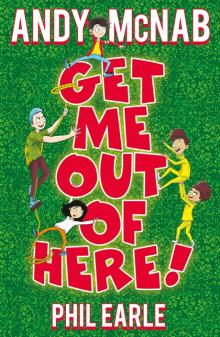 Get Me Out of Here!
Get Me Out of Here!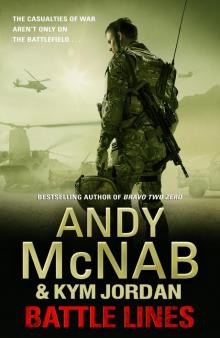 Battle Lines
Battle Lines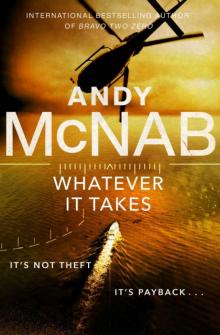 Whatever It Takes
Whatever It Takes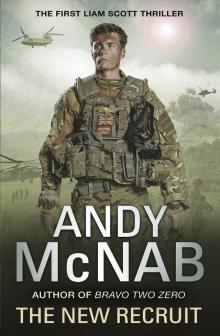 The New Recruit
The New Recruit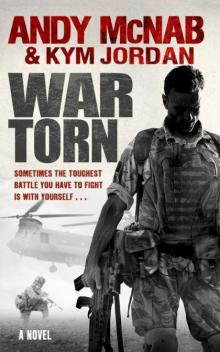 War Torn
War Torn Brute Force
Brute Force Crossfire
Crossfire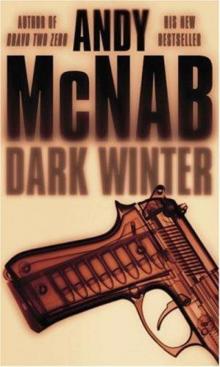 Dark Winter ns-6
Dark Winter ns-6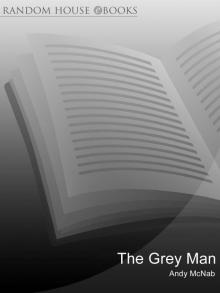 The Grey Man
The Grey Man Spoken from the Front
Spoken from the Front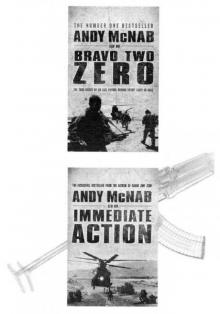 Meltdown
Meltdown Recoil
Recoil Nick Stone 1 - Remote Control.
Nick Stone 1 - Remote Control.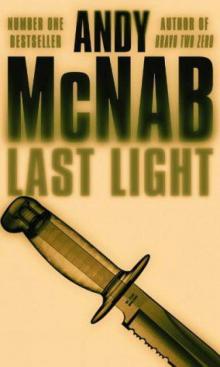 Last Light ns-4
Last Light ns-4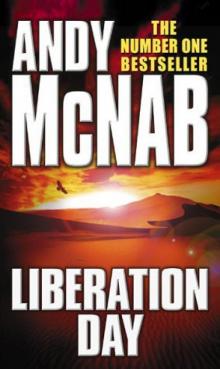 Liberation day
Liberation day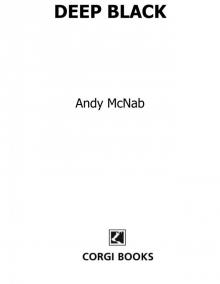 Deep Black
Deep Black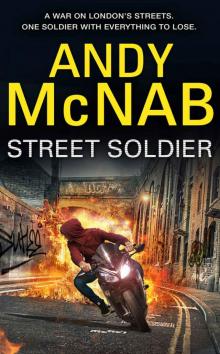 Street Soldier
Street Soldier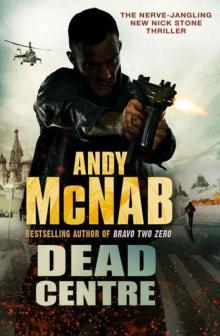 Dead Centre ns-14
Dead Centre ns-14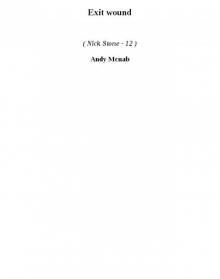 Exit wound ns-12
Exit wound ns-12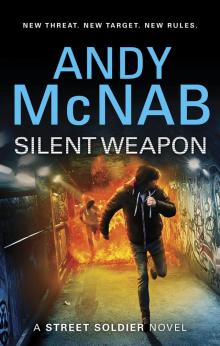 Silent Weapon
Silent Weapon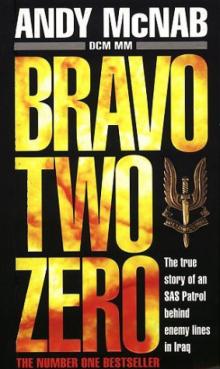 Bravo two zero
Bravo two zero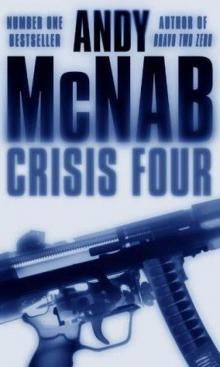 Crisis Four ns-2
Crisis Four ns-2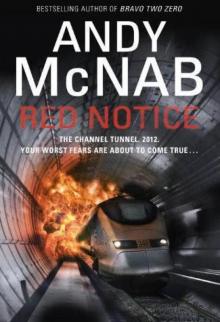 Red Notice
Red Notice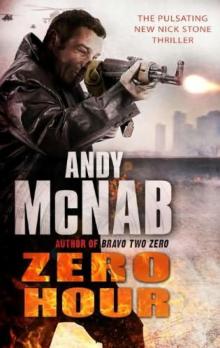 NS13 Zero Hour
NS13 Zero Hour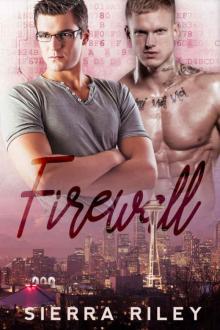 Firewall
Firewall Last Light
Last Light Aggressor
Aggressor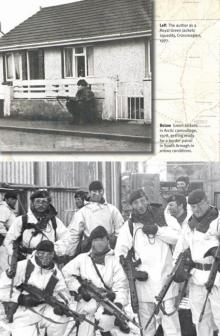 Seven Troop
Seven Troop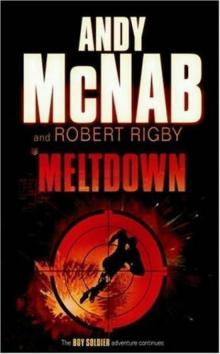 Meltdown bs-4
Meltdown bs-4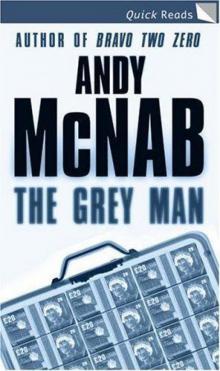 The Grey Man (quick reads)
The Grey Man (quick reads)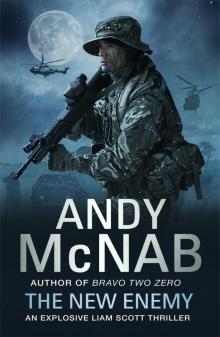 The New Enemy
The New Enemy Avenger
Avenger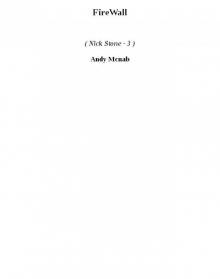 FireWall ns-3
FireWall ns-3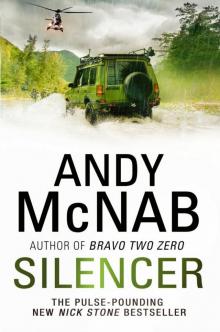 Silencer
Silencer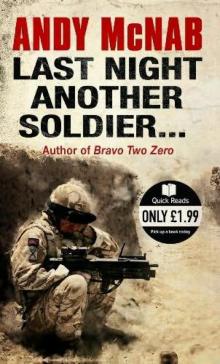 Last Night-Another Soldier…
Last Night-Another Soldier…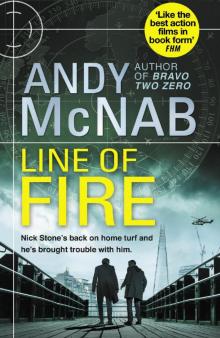 Line of Fire:
Line of Fire: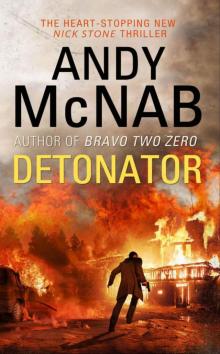 Detonator
Detonator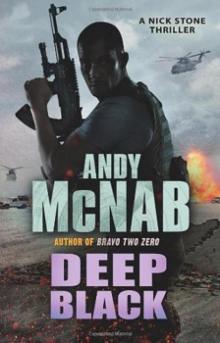 Deep Black ns-7
Deep Black ns-7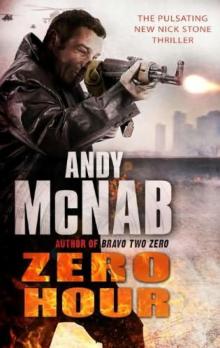 Zero Hour (2010) ns-13
Zero Hour (2010) ns-13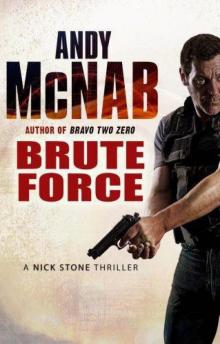 Brute Force ns-11
Brute Force ns-11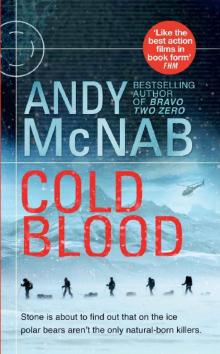 Cold Blood
Cold Blood Terminal Velocity
Terminal Velocity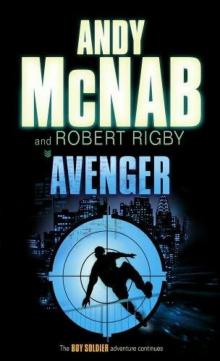 Avenger bs-3
Avenger bs-3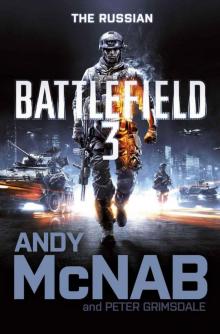 Battlefield 3: The Russian
Battlefield 3: The Russian DropZone
DropZone Zero Hour
Zero Hour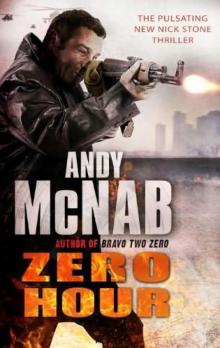 NS13 Zero Hour (2010)
NS13 Zero Hour (2010)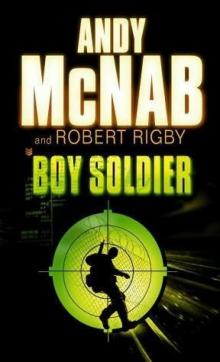 Boy soldier bs-1
Boy soldier bs-1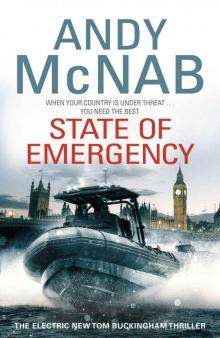 State Of Emergency: (Tom Buckingham Thriller 3)
State Of Emergency: (Tom Buckingham Thriller 3)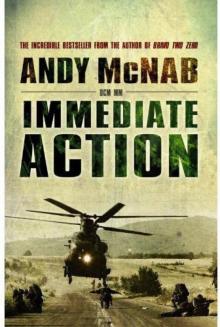 Immediate Action
Immediate Action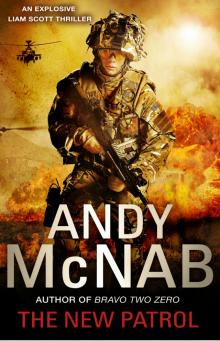 The New Patrol
The New Patrol Crisis Four
Crisis Four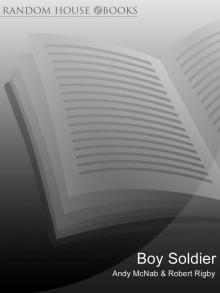 Boy Soldier
Boy Soldier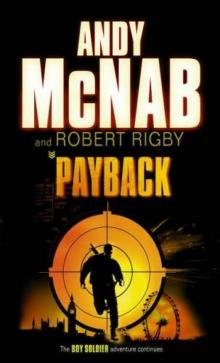 Payback bs-2
Payback bs-2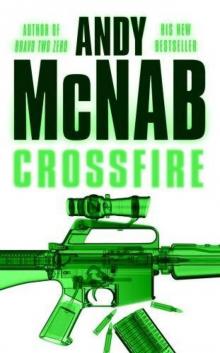 Crossfire ns-10
Crossfire ns-10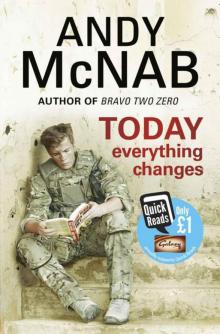 Today Everything Changes: Quick Read
Today Everything Changes: Quick Read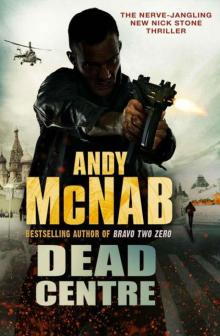 Dead Centre
Dead Centre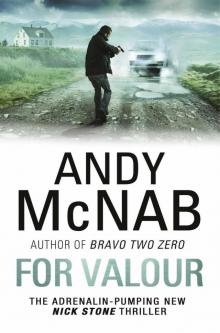 For Valour
For Valour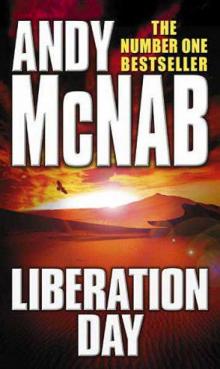 Liberation Day ns-5
Liberation Day ns-5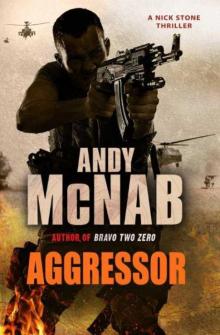 Aggressor ns-8
Aggressor ns-8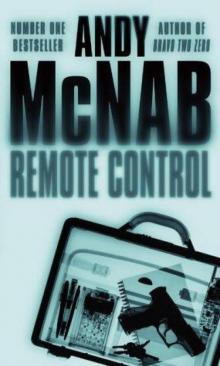 Remote Control ns-1
Remote Control ns-1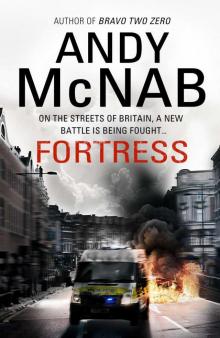 Fortress
Fortress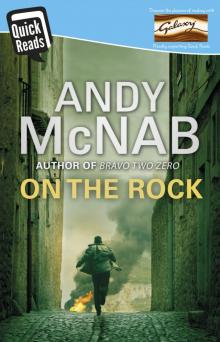 On the Rock
On the Rock Dark Winter
Dark Winter